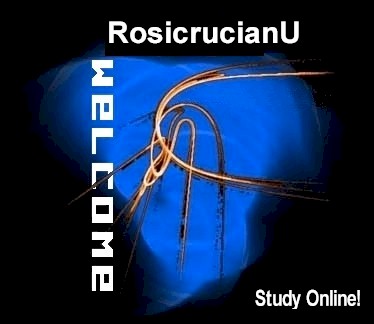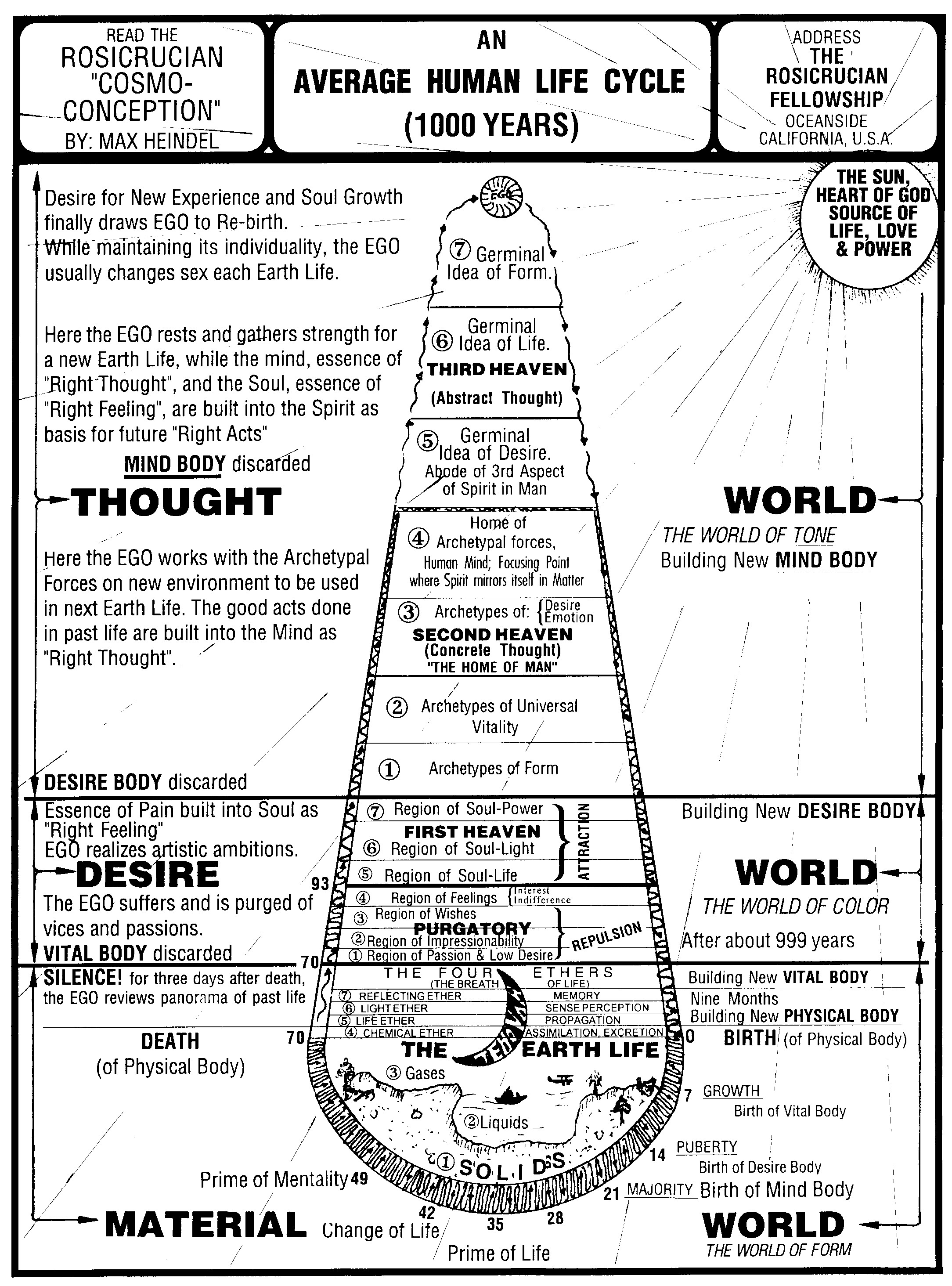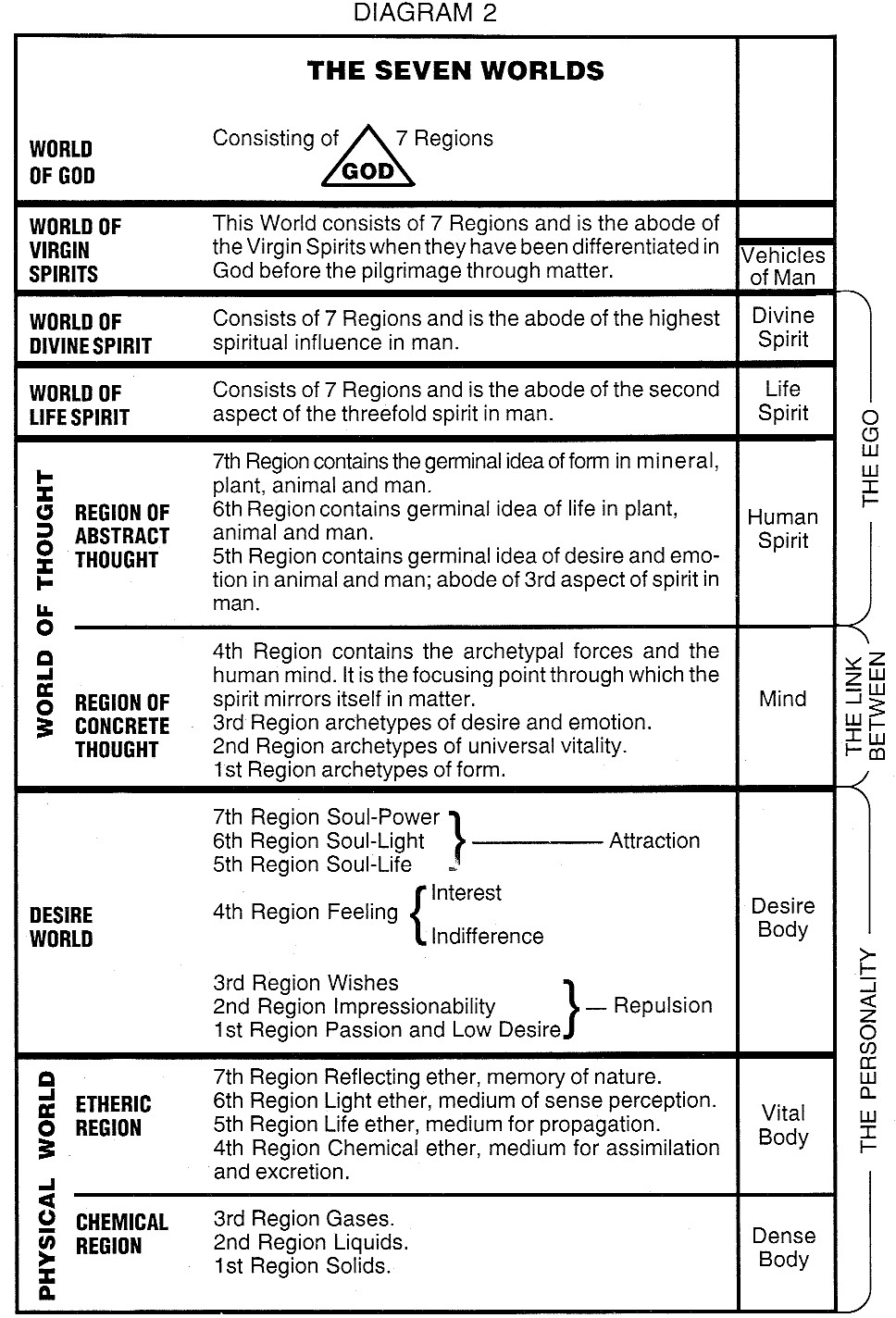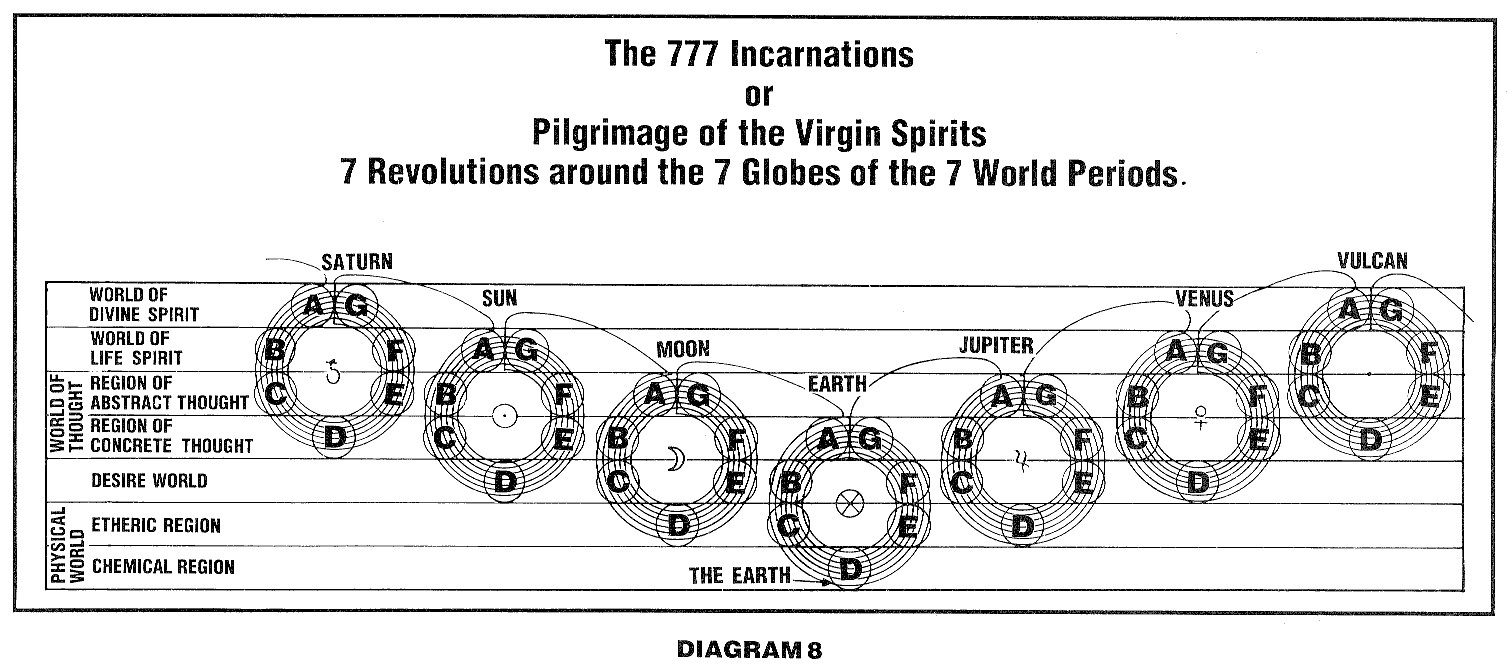
| rosicrucianU.com | ||
| Simplified Scientific Christianity |

We have seen that it is necessary to set aside all limitations of religion, family, environment and whatever else hinders in order to be able to grasp truth, but there is still another great requirement or one which, perhaps, is comprehended in the first. We cling to our religion, our friends, and our families through fear of standing alone. We obey conventions because we fear to follow the dictates of the inner voice that urges us on toward the higher things which are incomprehensible to the majority; and therefore in reality, fear is the chief obstacle which prevents us from getting at truth and living it.
This is also shown in the Ring of the Niebelung. Wotan decrees that Brunhilde, the spirit of truth, is to be put to sleep because he fears the loss of his power if he retains her after she has rebelled against his limitations and refuses to shield Hunding, the spirit of convention. He pronounces her doom in sorrow, saying that she must remain asleep until one more free than he, the god, shall waken her. "Perfect love casteth out all fear," and only the fearless are free to love and to live truth. Therefore, Brunhilde is put to sleep on a desolate rock, and around her burns forever a circle of flame kindled by Loge, the spirit of delusion. No one but the free — the unfettered and fearless soul — can ever hope to penetrate that circle of hallucination (conventionality) and live to love the reawakened spirit of truth, ever lovely and young.
Thus the second part of the mystic drama ends with the abandonment of truth and the triumph of convention. Creed is firmly established on Earth. Siegmund, the truth seeker, lies vanquished and dead. His sister-wife, Sieglinda, also has paid with her life for entering the quest and it would seem as if Brunhilde must sleep forever. Now the Walsungs have only one representative, the orphan child Siegfried, who was left in the cave of Mime, the Niebelung, by the dying mother, Sieglinda.
In time, however, the child grows up in youthful vigor, developing the strength of a giant. Beautiful as a god, he is a strange contrast to Mime, the ugly Niebelung, a dwarf who claims to be his father. Siegfried can scarcely believe that Mime is his father, for when he looks about him in the forest he sees that the nestlings resemble their parents, that the young of all animals have the same characteristics which are found in their parents. He alone is different from the one who claims him as a son.
When with prodigious strength he has caught a bear and leads it into the cave of Mime, the latter is almost paralyzed with fear, an emotion utterly unknown to Siegfried. Mime, one of the most cunning smiths among the Niebelung, has forged sword after sword for the use of this young giant, but each in turn has been shattered by the powerful arm that wielded it. Mime has indeed tried to weld the sword, Nothung (the child of distress or the courage of despair), which was shattered upon the spear of Wotan in the fatal fray between Siegmund and Hunding. The fragments of this sword were brought by Sieglinda to the cave of Mime, but no one is a coward can either forge or wield the sword, Nothung (the courage of despair or the child of distress); therefore, Mime, despite all his skill has failed every time he has tried. One day when Siegfried taunts him because of his inability to make a sword that will stand, Mime brings out the fragments of Nothung and tells him that if he can weld it, it will serve him well. Possessing that cardinal qualification of the truth seeker, fearlessness, Siegfried accomplishes with unskilled hand what Mime has failed to do. He forges anew the magic sword and is thus prepared for the quest of truth and knowledge.
Though ages have passed since Alberich, the Niebelung, was forced to part with the Ring as ransom to the gods, neither he nor his tribe have forgotten the power wielded by its possessor. And the longing to regain the lost treasure is still rife among all of them. For mankind, being inherently spiritual and free, will never be reconciled to the loss of individuality insisted upon under the regime of the church. Though, like Mime, they may be imbued with an uncontrollable fear; though they may cringe and fawn before the higher powers, as Alberich fawned before Wotan, they always, whether subconsciously or otherwise, remember their spiritual heritage and seek to recover their estate as free agents unbound by creed or other limitations.
To this end they scheme and plot in the most subtle manner, as symbolized by the aid Mime gives Siegfried to forge anew the sword once shattered by Wotan. He sees that the young truth seeker is fearless. He knows that Fafner, one of the giants who obtained the Ring from the gods, broods over his treasure in the form of a huge dragon, awe inspiring in the extreme. He can scarcely believe it possible for anyone to vanquish this monster, but he believes that if it can be done, this fearless young giant, Siegfried, is the only one able to accomplish the feat. It has, indeed, been said that the one who forges Nothung will slay him; and Mime trusts to his cunning and hopes that if Siegfried kills the dragon, he, Mime, may be able to obtain possession of the Ring of the Niebelung and become the master of the world.
There is a very deep spiritual significance in this tale, namely, that of the lower nature plotting to use the higher self for its own vile purposes. Siegfried (he who through victory gains peace) is the higher self at that stage of its pilgrimage where it has been left all alone, without kith or kin, where it sees that the shape of clay symbolized by Mime is not part of it, but of an entirely different race and breed, where it is ready to continue its search for truth, attempted in previous lives as did Siegmund and Sieglinda, from whom the indomitable courage that knows neither fear nor defeat has been inherited.
But though the seeking soul may forsake the world as did Hertzleide, the mother of Parsifal, who gave birth to the truth seeker in a dense forest, and as Sieglinda who bore the child, Siegfried, in the cave of Mime, the lower nature follows, scheming to use the power of spirit for worldly ends. Alas! how many have left the churches in despair because of creed, as Siegmund left Wotan; who have gained a certain knowledge of the higher things and have then misused their heavenly powers (as with hypnotism and mental suggestion), to attract to themselves the goods of this world, seeking rather the things of Earth which fetter than the treasures of heaven which free the soul.
There has never been an age on Earth when this part of the great myth was so generally enacted as it is today. There are many thousands of people who represent in themselves, Siegfried and Mime — Dr. Jekyl and Mr. Hyde. They are roused to a greater or lesser realization of the powers of the spirit, of their divine nature and attributes as Siegfried was, but the lower phase of their nature, Mime, keeps on scheming for material benefit.
And whether we call this use of the divine powers, Christian, or by another name, it is not the science of the soul. We should be honest with ourselves and recognize the fact that He, who had not a place whereon to lay His head, and who was the very embodiment of the attracting Christ power, refused to use that power for His own benefit. Even at the point of death He refrained, and it was said of Him that others He saved, but Himself He could not (would not) save because the Law of Sacrifice is greater than the law of Self-preservation: "For what shall it profit a man, though he gain the whole world and lose his own soul?"
The moment we set out upon the path in earnest, the lower nature is doomed despite all its efforts of cunning to save itself. And when Mime plans to send Siegfried against the dragon, Fafner, the spirit of desire, he has in fact sealed his own fate; for when the soul has conquered the desire for worldly possessions, we are dead to the world even though we may still live here and perform our work in the world. We are then in the world but not of it.
Led by Mime, Siegfried finds the giant Fafner guarding the cave where he has hidden the hoard of the Niebelungs. The lower nature always urges the higher to seek the material wealth of the world, seeking, thereby, to obtain standing and power in society. It is, alas, all too common, this desire and thirst for wealth and power! We are all like Mime, ready to risk our lives in the quest of gold. And though Mime quakes at the very thought of being near the dreadful dragon, he keeps on plotting for he knows that when the Ego, represented by the Ring of the Niebelung, is so enmeshed in the snares of materiality that the body may be said to own the Ego, when all its energies are directed by the lower nature, there is no limit to the power it may attain. But Siegfried, the fearless truth seeker, when he has vanquished the dragon, representing the desire nature, also slays Mime who is emblematic of the dense body.
Freed from the mortal coil, the Spirit is able to understand the language of Nature. Intuitively it senses where truth, represented by Brunhilde, the Valkuerie, is hidden; and following this intuition, represented in the myth by a bird, he starts for the fire-girt rock to wake and to woo the sleeping beauty. But though we may, by laying aside the physical body, enter the realm where truth is to be found, the pathway is not by any means clear; for Wotan, the warder of creed, stretches his spear across the path of Siegfried, endeavoring to the last to dissuade or discourage the independent searcher for truth. However, the power of creed, represented by the spear of Wotan, was weakened when he bargained with the giants; in other words when it appealed to the lower side of man's nature. And in token of this weakening, magic characters were cut upon the shaft of the spear. This is, therefore, easily broken in twain at the first blow from Nothung, the courage of despair or the child of distress.
When the truth seeker has come to the point here described, he will no longer allow himself to be thwarted in his quest, whether the opposing power be devils like Fafner or gods like Wotan. Every obstacle he removes with ruthless hand for he has only one desire in the world, an overwhelming craving to know truth. Therefore, after shattering the spear of Wotan, he presses onward led by the bird of intuition until he comes to the circle of flame hiding Brunhilde, the sleeping spirit of truth. Neither is he daunted at sight of Loge's flames of illusion and hallucination. He plunges boldly through, and behold! there lies that for which he has panted during many lives. He stoops, gathers Brunhilde in his strong yet tender arms, and with a fervent kiss he awakens the spirit of truth from her age long sleep.
(You are welcome to e-mail your answers and/or comments to us. Please be sure to include the course name and Independent Study Module number in your e-mail to us. Or, you are also welcome to use the answer form below.)
1. What is the chief obstacle which prevents us from living the truth?
2. Why does Siegfried doubt that he is the son of Mime?
3. Why was Mime unable to weld the sword Nothung, the child of distress or the courage of despair?
4. Explain the spiritual significance of Siegfried inheriting his indomitable courage from Siegmund and Sieglinda.
5. What law is greater than the law of self-preservation?
6. What does the sleeping Brunhilde within the circle of fire represent to Siegfried?

|

|

|
|
|
Contemporary Mystic Christianity |
|
|
This web page has been edited and/or excerpted from reference material, has been modified from its original version, and is in conformance with the web host's Members Terms & Conditions. This website is offered to the public by students of The Rosicrucian Teachings, and has no official affiliation with any organization. | Mobile Version | |
|